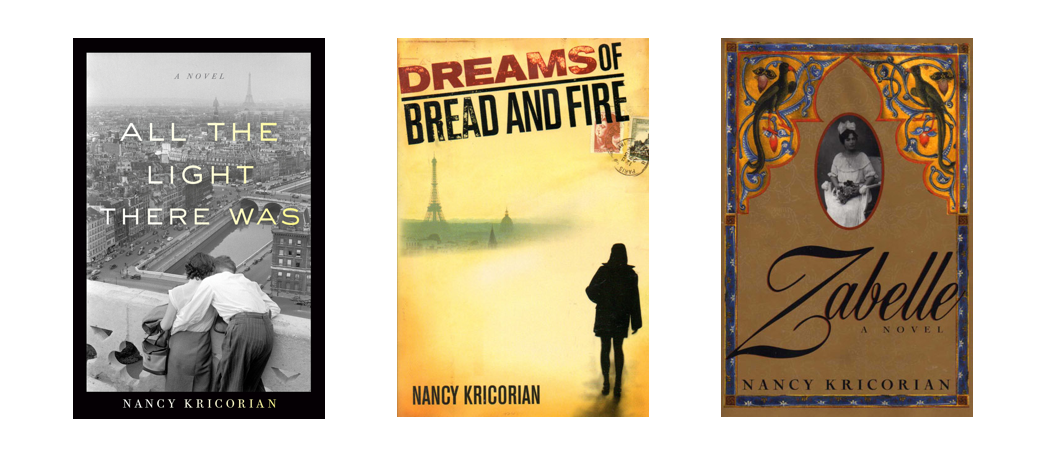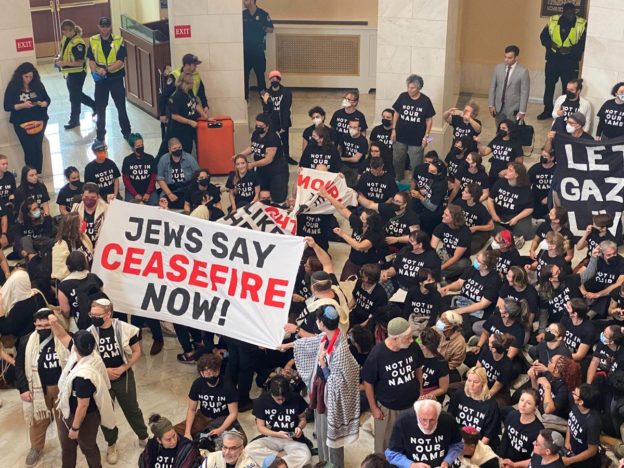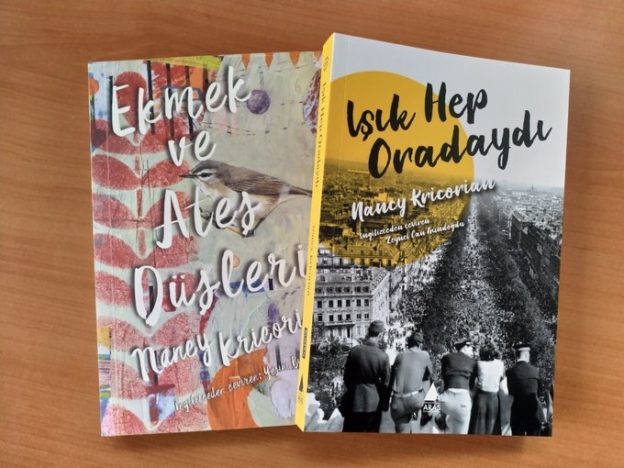
NIGHTMARE
Much has been made of the analogy between publishing a novel and giving birth to a child. Having given birth to two children and published three novels, I can say the two things have very little in common. One of traits they do share is that the pain involved is quickly forgotten, almost erased from memory, so that one is willing to undertake the process again. When I was in labor with my first child—a labor that lasted 24 hours—at the height of the agony, I insisted that my spouse repeat this sentence, “I promise I will never let you do this again.” Of course, several years later I was the one lobbying for another child, and when I went into labor a second time, the pain of the first rose up in my bodily memory like a hammer, and I thought, “Oh no! I didn’t want to do this again.” But by that point I had no choice.
About six months before the publication of my first novel, I had lunch with a writer friend who had already published three books. He kindly offered to pen a laudatory quotation for use on my novel’s back cover, and we talked shop about publishers, first print runs, foreign rights sales, and the like. I was working as a literary scout for international publishers at the time so I knew a fair amount about the business, but I was a neophyte as an author. When he said, “The three months around publication are a complete nightmare,” I was shocked. For years I had been longing to hold in my hands a copy of a book with my name printed on the cover. Wasn’t that the whole point of writing? Wasn’t that every unpublished writer’s dream? And here he was telling me that the achievement of my heart’s desire was going to make me miserable. I didn’t believe him, and even if I had believed him, it wouldn’t have made any difference because, as with childbirth, no amount of intellectual knowledge can prepare you for the lived experience.
Yet when the novel Zabelle was published in early 1998 I entered, as he had predicted, a dreadful realm where I couldn’t see the cover of a newspaper or magazine, including automotive trade rags, without wondering if my book were reviewed in its pages. I read all the reviews, getting a quick, temporary high from the good ones, and inadvertently memorizing the nasty bits from the bad ones. In the middle of the night the derisive comments would come echoing up in the voice of a wicked Disney Queen. The book tour had similar highs and lows—at one reading there were over a hundred people in the audience and for an hour I felt like a rock star; at the next gig only five souls showed up and I felt humiliated. I checked my Amazon.com sales rank on a daily, if not hourly, basis. I was still working in publishing then, and when I heard news about novels my editor had subsequently purchased, I was jealous if she had paid higher advances for them than she had for mine. I was, in fact, suffering from jealousy about what other “literary” (as opposed to commercial) writers that I knew had achieved: advances, print runs, foreign sales, film sales, starred reviews, twelve-city book tours, awards, honors, speaking gigs, and teaching positions.
But eventually the publication ordeal was in the past, the anxieties receded, and life got back to relative normal—until the aftershocks of the paperback launch a year later. It was difficult, if not impossible, to work on another novel during the months around publication of the hardcover and later the paperback. Then I was finally writing again—working on a second book. I went through a similar process when that one was published in 2003, except that it was a less successful book (fewer reviews, fewer copies sold, no translation sales). The Armenian community had avidly embraced Zabelle, which was a fictionalized account of my grandmother’s life as an Armenian genocide survivor and immigrant bride. The second book, Dreams of Bread and Fire, was a coming of age story about a half-Armenian young woman named Ani Silver who hops a freight train, has sex, experiments with drugs, and gets involved with a Marxist-Leninist revolutionary who sets off a bomb outside a Turkish airlines office. Two years after the 9/11 attacks was not a great moment for a book with a bomb in it, and if Zabelle was everyone’s beloved grandmother and mother, Ani was the daughter and granddaughter nobody wanted. If I had titled the book The Bad Armenian Girl it would have sold more copies. But my imagination resists commercial considerations.
I started my third novel not undaunted, but definitely unbowed. By the time the All the Light There Was, a novel about Maral Pegorian, a young Armenian girl growing to maturity in Paris during World War II, came out, the publishing world had undergone a sea change. While the book was a success in many regards—I earned out my advance, I sold over three times as many copies as I had of the previous book, and it was well reviewed—the process was fraught for all the old reasons and a few new ones. In addition to the mainstream reviewers and Amazon customer comments, there were now dozens if not hundreds of places people could vent their feelings about a book: Goodreads, Library Thing, and professional, literary and personal blogs. No matter how many four- and five-star reviews my book accrued, I had to train myself NOT to pay attention to the snarky one-star reviews. Then, in what seemed like an unimaginable setback, the publisher decided not to do a paperback. For a few weeks I was devastated, but rather than wallowing in despair, I followed my hero Grace Paley’s dictum, “The only recognizable feature of hope is action.” My agent was able to get the publisher to revert the paperback rights, and I approached my friends at She Writes Press about the possibility of doing the paperback with them. She Writes was in the business of producing paperback originals, but the publisher told me I was the third writer who had recently approached her with this kind of reprint saga and they would indeed be able to help me.
The paperback of All the Light There Was appeared in October 2014, and the sales have been good, far outstripping the low expectations of the hardcover publisher. Now I’m starting work on my next novel, the fourth in what my editor has labeled The Armenian Diaspora Quartet. I have been researching for over a year—the book will be focused on an Armenian family in Beirut during the Lebanese Civil War. I haven’t started writing yet, and my psychotherapist asked me, “Are you sure, after how hard the publication process was on you, that you want to do another one?” I answered, “The writing is the good part, and the rest… I’ll deal with that when the time comes. I’m such a slow writer that it won’t be for another five years in any event.”
HAPPY AFTERLIFE
The other aspect to all this is that, despite my complaints and pains, all three of my novels are still in print. And when I reference the “happy afterlife of books,” I’m using the word happy in its original, archaic meaning. The word “hap” comes from Middle English for chance, luck, or fortune. I have the great good fortune that my books are available in paperback, in e-book versions, and in audio format. I have even recently signed a contract for a French edition of my second novel. I am lucky and grateful.
Each time after the promotional push around publication, I’ve had the feeling that my novel, which has the shelf life of yogurt in the brick-and-mortar bookstores, has been laid to rest. As far as the publisher is concerned, it’s done and they have moved on to the next season’s titles, but the funny thing is that my books are out in the world—in libraries, in people’s homes, available through online retailers, and in second-hand bookstores—and they continue to circulate and to have lives of their own, lives that I know nothing about except when I see a new customer comment on Goodreads, or when someone contacts me via Twitter or Facebook to express appreciation, or when I receive a fan letter through my agent. Another way that I’m fortunate is that I have a readership that cares about my work. I’m a minor celebrity in a minority community. At a recent Armenian fundraiser, a man seated at my table, when he found out that I was the author of Zabelle, told me that his mother has kept a copy of the book on her nightstand for many years. I love the idea that Zabelle Chahasbanian, Ani Silver, and Maral Pegorian are living in the hearts of unknown readers. It gives me the necessary drive to breathe life into my new heroine. Her name is Vera Serinossian.
Nancy Kricorian



